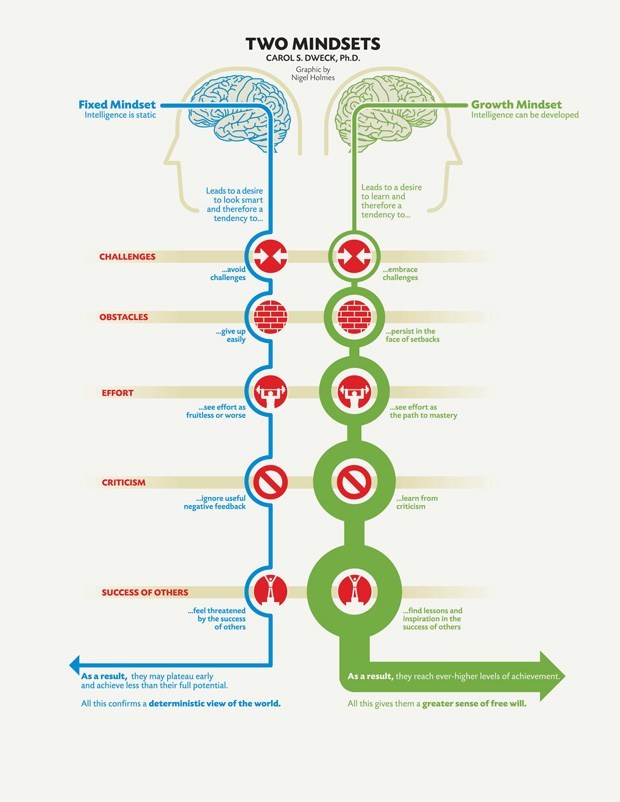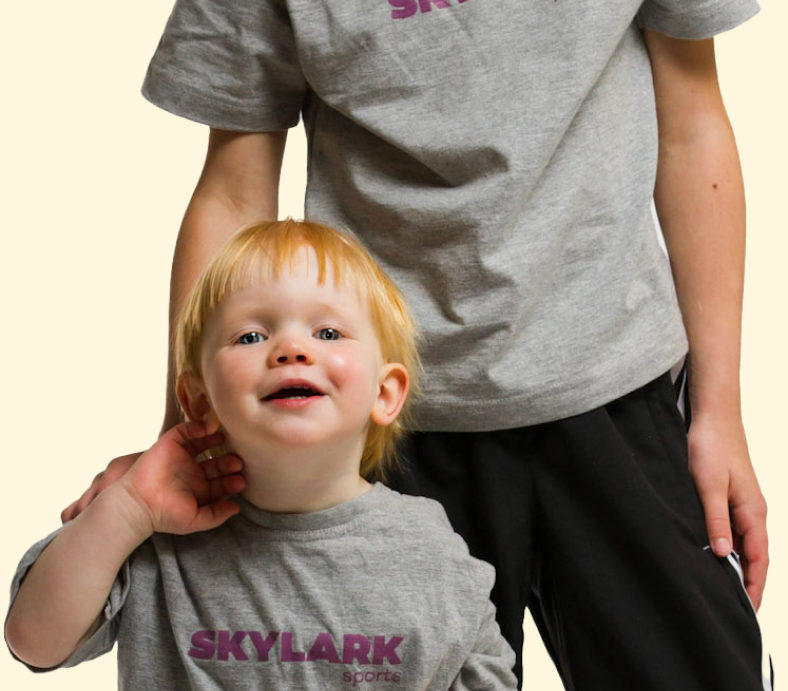What is it that makes some people more successful than others? Are they just born gifted with talent? Are they luckier than other people? Or maybe, it’s the way that they think…
Growing a Growth Mindset
Because changing your mindset helps you achieve your goals!
What is it that makes some people more successful than others? Are they just born gifted with talent? Are they luckier than other people? Or maybe, it’s the way that they think…
After studying the behaviour of thousands of children, Stanford Psychologist Dr. Carol Dweck found that the children’s mindset had a profound affect on their abilities to work through problems. She created the terms ‘growth mindset’ and ‘fixed mindset’ to categorize the differences in people’s beliefs about their learning and intelligence. She found that when people believe they can get smarter, they understand that effort makes them smarter, and therefore put in the extra time and effort to become high achievers.
So what is the difference between a growth mindset and a fixed mindset?
If you have a fixed mindset, you’re likely to believe that some people are naturally more talented than others and there’s nothing you can do about it. Your brain is unchangeable – you only have a set amount of intelligence. There are just some things that you’ll never be good at, so why bother trying. Failure is a direct reflection of your abilities and you as a person.
The growth mindset on the other hand believes that through effort, talent and intelligence can be developed. Skills can be learned. Failure isn’t final, it shows us areas we can work on to improve.
Here’s how the two mindsets think:
At Skylark Sports, we believe that having a growth mindset can lead kids to achieve their goals in gymnastics, school, or whatever life goals they want to achieve. We believe it so strongly that we’ve made it one of our values and included mindset training in our staff education. We study and understand the difference between a fixed and growth mindset, we recognise these mindsets in ourselves and our students, and we work towards a culture that supports and encourages a growth mindset for all.
The best place to start with understanding just how powerful a growth mindset can be, is with this video on the power of yet from Carol Dweck herself.
We teach all of our coaches how to encourage kids to form a growth mindset, and here are a few of our favourite tips for helping your child form the way they think.
Praise the effort, not the outcome.
When we encourage the kids we teach, we avoid saying things like: ‘you’re so talented,’ ‘you’re such a good gymnast,’ or ‘wow you are the best at climbing the ninja bars’.
Instead, we try to praise the process and the effort.
You might hear our coaches say things like: ‘that was a really good handstand, I can see you’ve been working really hard on keeping your arms straight,’ ‘I really like how you use your legs to get super high in your rocket jumps,’ ‘the high beam can be really scary, it was very brave of you to try walking along all by yourself,’ or 'congratulations on finishing the ninja challenge, all your extra strength training has really paid off.'
The power of yet.
Just like in the video above, ‘yet’ is a super powerful word. It helps kids learn a positive growth mindset when faced with failure. Sure, they might not be able to do a handstand by themselves – but encouraging them to think of this as ‘I can’t do a handstand yet’ rather than ‘I can’t do a handstand’ teaches kids that it’s not all over. They can change their ability and achieve their handstand goal if they keep working.
Hard work, not talent.
In gymnastics (as in school and life) kids will inevitably be surrounded by people who seem smarter, faster, or stronger than they are. We encourage kids to look at these people and see them for the effort it took for them to get there. It’s like that Lionel Messi quote, ‘It took me 17 years and 114 days to become an overnight success.’ Whenever we hear kids say something along the lines of ‘I’ll never be as good as them,’ we like to remind them that the person they look up to wasn’t born with their abilities, they probably worked very hard and practised over and over until they got their skills. With effort and patience, you can gain those abilities too.
Honestly, we could go on about the power of mindset – but if you’re really interested in how this all works, we’d recommend grabbing a copy of Dr. Dweck’s book Mindset. You can get your copy from Amazon for Kindle, audiobook or as a physical copy.


